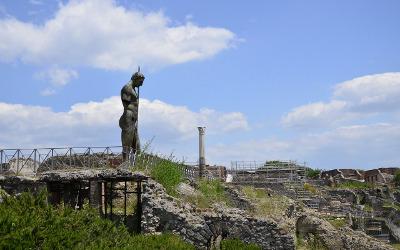Day 23, Year of #Mygration: Ludwig Guttmann
 As a bridge between being ‘Open to People’, the theme for January in our Open University Year of Mygration, and being ‘Open to Places’, our theme for February, why did a Jewish refugee from Nazi Germany in 1939 feature on a Russian stamp 75 years later and why is he so significant for the coming days in Korea?
As a bridge between being ‘Open to People’, the theme for January in our Open University Year of Mygration, and being ‘Open to Places’, our theme for February, why did a Jewish refugee from Nazi Germany in 1939 feature on a Russian stamp 75 years later and why is he so significant for the coming days in Korea?
The leading neurological surgeon in Germany, Dr (later Sir) Ludwig Guttmann came to Oxford in March 1939 as a Jewish refugee from the Nazis. The University of Oxford was a haven for scientists and their families, playing its part within the Council for Assisting Refugee Academics (CARA) in enabling the Guttmanns to leave Germany on the day before the invasion of Czechoslovakia. The Guttmann family initially stayed in the house of the Master of Balliol, A D Lindsay. Dr Guttmann wanted to work in hospitals and laboratories but he was not entirely happy with the work he was allowed to do and so seized the opportunity to make a difference at Stoke Mandeville. The prospect of a second front in 1944 meant that more and more spinal injuries were anticipated by the British authorities, who invited Dr Guttmann to do something about it. Up to this point in the war, 80% of those suffering from paraplegic injuries were dying within the first year of their injuries, usually from bedsores or bladder infection. Guttmann’s simple but insistent interventions, such as personally supervising bed-turning during the night, soon turned this into a 80% survival rate.
More than the physical, however, Guttmann’s lasting legacy was the psychological impact of sport. Here it was, then, that he pioneered the use of sport for rehabilitation, primarily among those wounded in the war. He developed a competitive element and soon mounted the Stoke Mandeville Games, deliberately timed by Guttmann to coincide with the London 1948 Olympics. The Games grew in stature. The first time what we now call the Paralympics were held in the same host city at around the same time as the Olympics was in Rome in 1960. Pope John XXIII greeted Sir Ludwig Guttman by exclaiming, ‘Ah, Dr Guttmann. You are the de Coubertin of the paralysed!’, drawing an analogy to the moving force behind the modern Olympic movement. Pope John’s message to the athletes with disabilities was that, ‘You are the living demonstration of the marvels of the virtue of energy. You have set a great example which we would like to emphasise, because it can be a lead to all. You have shown what one energetic soul can achieve in spite of apparently insurmountable obstacles imposed by the body’.
At London 2012, the adoption of Mandeville as the name of one of the mascots was a nod in the direction of Sir Ludwig Guttmann. CARA also celebrated his work and the story of academic refugees at Stoke Mandeville. The Poppa Guttmann Recognition and Celebration Project at Stoke Mandeville records on its website, ‘Physical training and sports played an essential role during the Jewish revival after the end of the 19th century. It was not just an expression of a new Jewish self-confidence but also a way for the integration of Jews into a non-Jewish environment. One can assume that Guttmann's involvement in sports activities during his youth in Germany, as a member of the Jewish fraternity, played an important part in the inclusion of sport in the rehabilitation programme for the spinal injuries patients. Guttmann's programme aimed at reintegration into a normal life which especially in a society such as the one of Great Britain included sport. Besides sport’s therapeutic value as complement to the traditional physiotherapy (in restoring the disabled person's strength, co-ordination, speed and endurance) sports events have a great advantage because of their recreational and psychological value. The aims of sport are to develop self-discipline, self-respect, competitive spirit and comradeship - mental attitudes that are essential for the disabled person's integration into the community.’
If there were to be a monument to Sir Ludwig Guttmann as a forced migrant, a refugee, what might it say? His legacy has been to encourage a worldwide movement, the Paralympics, that has captured our imaginations and challenged perceptions of those with disabilities. Although his expertise was seen as being to do with mending or rehabilitating the body, he appreciated the importance of the mind and spirt of those who were suffering. At a time when higher education is paying more and more attention to mental well-being, we might be able to discern in Guttmann’s radical, holistic approach something which he brought with him to a new country as a migrant. It was not enough for the Guttmann family to be given shelter. He wanted the opportunity to make a difference and he knew that was what everyone deserves, including those disadvantaged by the ‘immobility’ of a physical injury or condition and those disadvantaged by the forced ‘mobility’ endured by refugees.
Contact our news team
For all out of hours enquiries, please telephone +44 (0)7901 515891
Contact detailsNews & articles
Quarterly Review of Research
Read our Quarterly Review of Research to learn about our latest quality academic output.

